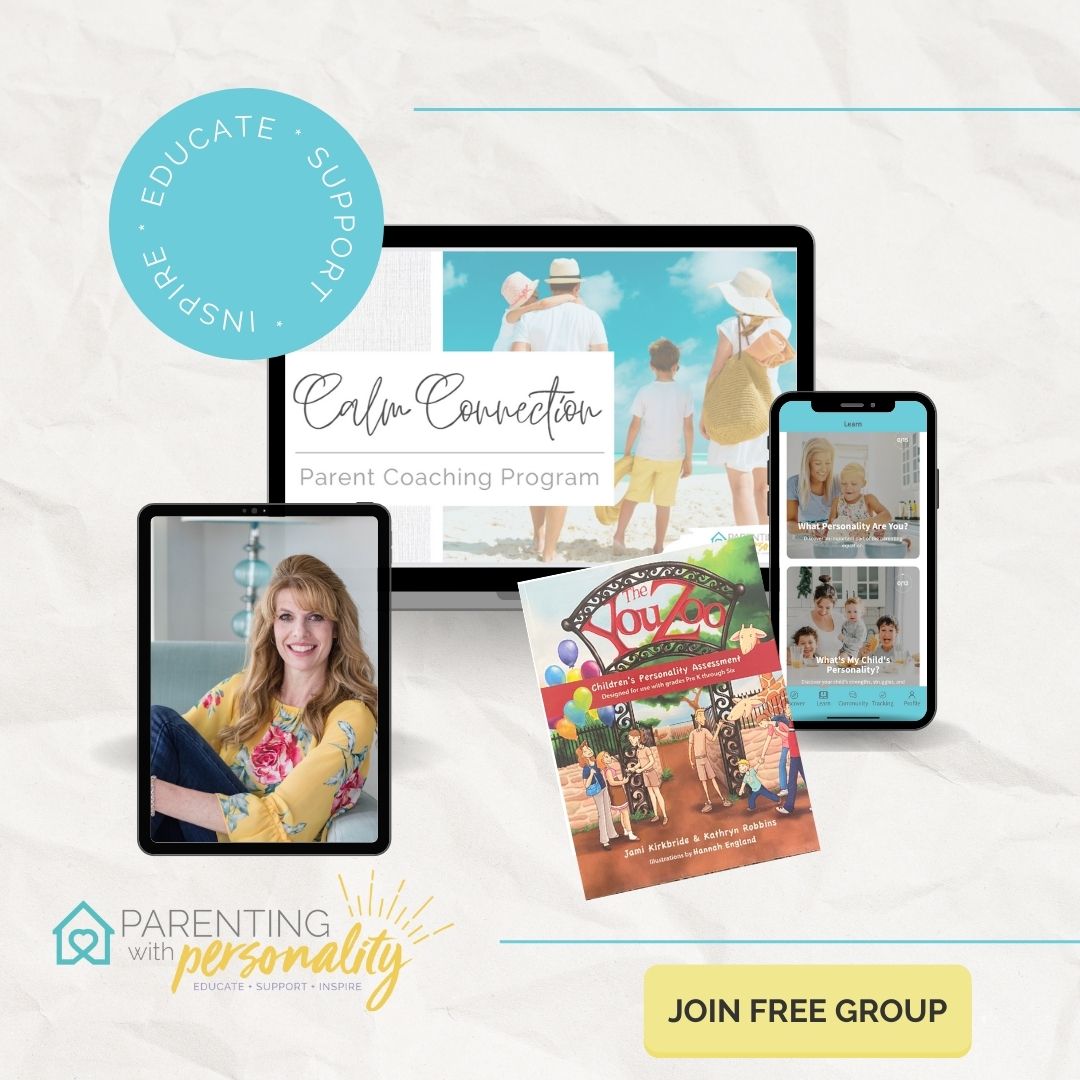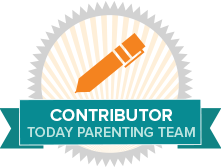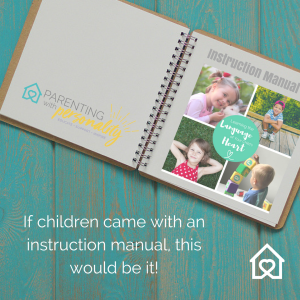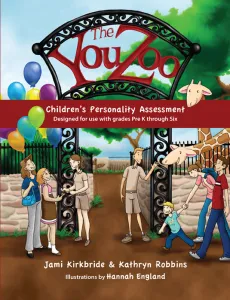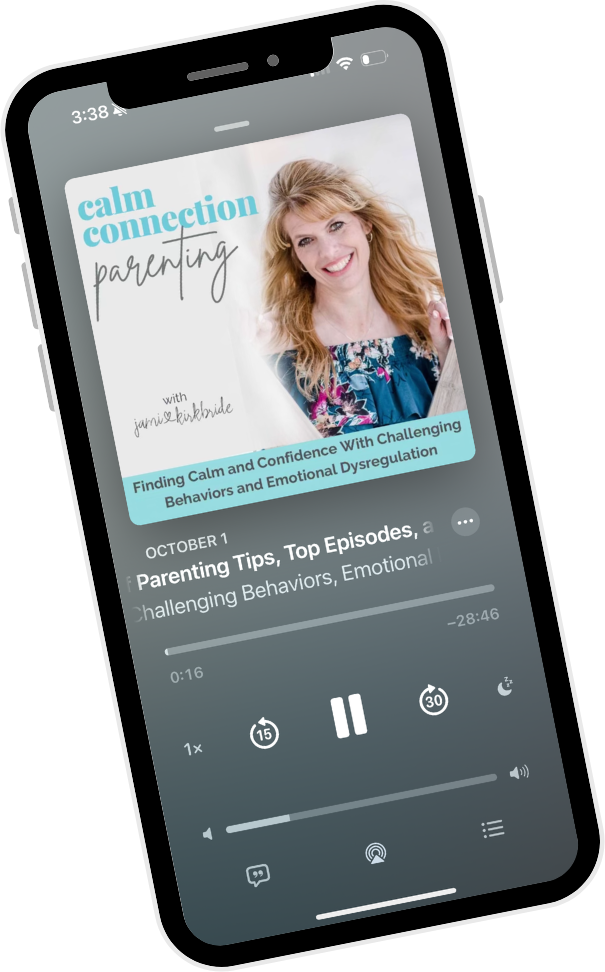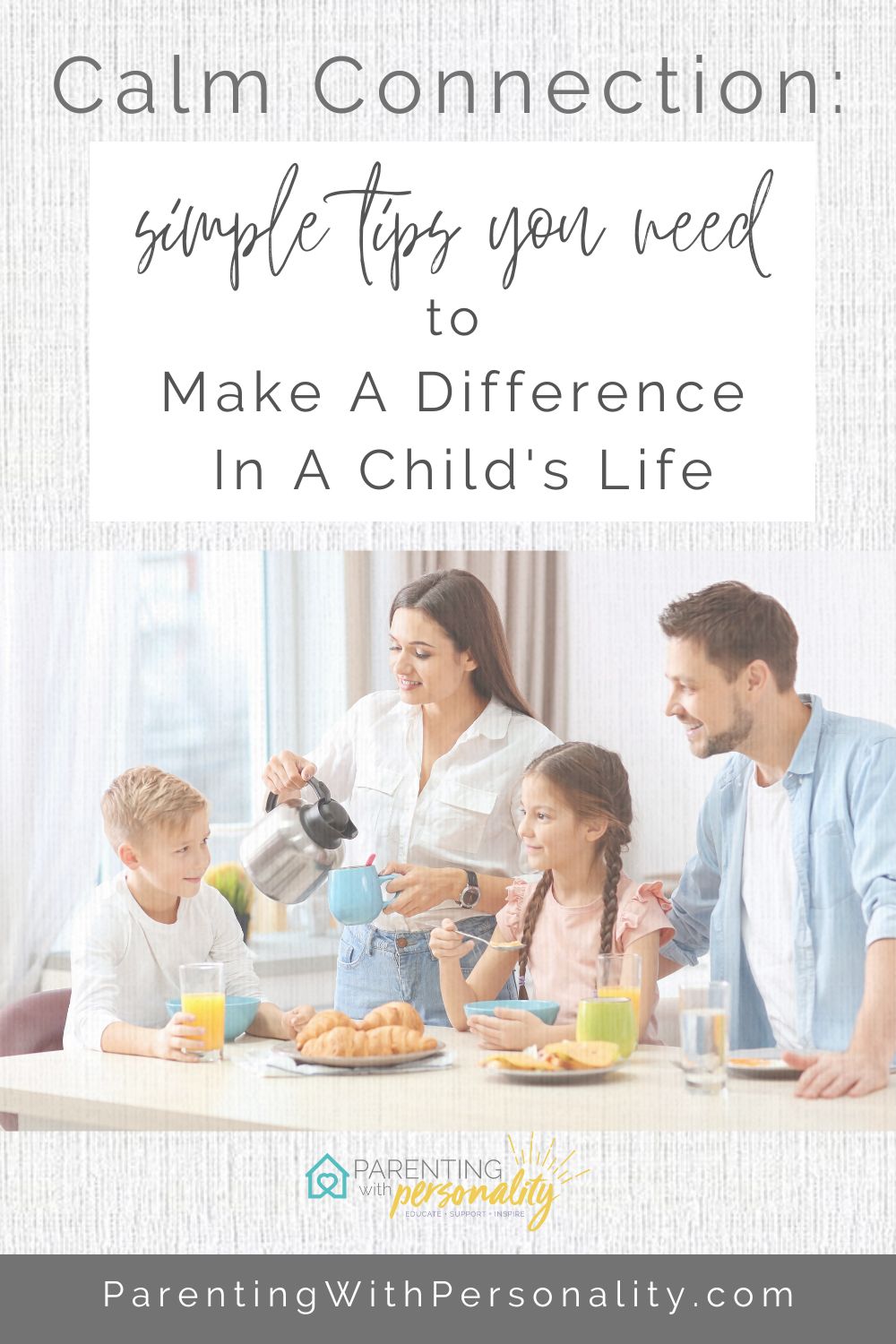
Importance of Making A Difference In A Child’s Life
Embark on a heartwarming journey to make a difference in the life of a child! Discover practical tips to create a lasting impact and foster a meaningful connection. Explore the power of healthy relationships, embrace your vital role in nurturing strong bonds, and unlock a child’s limitless potential. Together, let’s celebrate the significance of family connection and learn valuable tools for overcoming parenting challenges and promoting resilience. These practical parenting tips will be things you can implement right away. You can make a difference in the life of a child today!
In a world full of challenges and uncertainties, one of the most important things we can do is make a difference in the life of a child. God created each child with a unique personality, wiring, talents, hopes, and dreams inside them, just waiting to be nurtured and guided. As parents, you are the first person in the position to make such an impact. Caregivers, educators, and members of society also have a special opportunity to create a positive impact and help in making a difference in the life of a child and the next generation.
We can unlock their limitless potential as they live out the purpose for which they were created. Join us as we explore practical ways we can make a difference in the life of a child as we help them become resilient, caring, and successful individuals. Let’s make a positive impact together!

Establishing Healthy Relationships Early On
“We have to prioritize relationships with our children over everything else because that’s the foundation on which everything else is built.” – Mona Delahooke
From the time a child is born, they crave connection. When they have that loving, protective, and safe environment to grow, their physical, emotional, mental, social, and spiritual development and well-being can thrive. Unfortunately, the opposite proves true too. Apart from this connection, love, and support, they will be at greater risk for mental health issues or illness, harm, danger, and choices that can take them down a pretty dark and lonely path. Janet Lansbury says it well, “Positive connections with children are essential for their healthy brain development and overall well-being.”
Role of Parents in Building Connection
As a parent, you are that first individual that a child will bond and connect with. Through you and your interactions with them, they learn about trust, love, nurturing, and acceptance. They discover that when they need something, you will respond. And they learn that when they don’t know what to do, you can help them. You as a parent are positioned to make the first, and most impacting difference in the life of a child. And how easy it is to lose sight of that important role in their life! That is why it is so essential that you approach this role with intention and purpose.
You were gifted a child that God hand-picked especially for you, and you for him. “Building strong relationships is key to making a lasting impact on a child’s life,” Peg Dawson explains. As a result, in those first 18 years of their life (a little longer for some), you get to focus on this connection in the safety and security of your home, prior to their launch into the bigger world.

“To make a difference in the life of a child, we must love them unconditionally and show them that they are valued and worthy.” – Dr. James Dobson
National Make a Difference to Children Month
While July is National Make A Difference to Children Month, it seemed like a great time to introduce a topic that needless to say, impacts us year-round. Making a difference isn’t something we focus on annually. In any case, this is something we should focus on daily. Whether in your home, school, community, church, or elsewhere, you are coming into contact with children. And regardless of this being your child or someone else’s, and whether you are the parent, teacher, caregiver, or some random role…the impact you can make is astounding! So don’t pass up your opportunity to make a positive difference in a child’s life…and your child’s life today!

The Power of Family Connection
Study and Implications For Child Flourishing
Recently, I came across an interesting study, where researchers surveyed over 37,000 children in 26 countries. The study included 37,000 children ages 11-13 from Europe, Africa, Asia, and South America and results were gathered by the International Survey of Children’s Wellbeing. “This study found adolescents who reported having a great bond with their family also reported that they were succeeding in life,” CNN Megan Marples reported.
Numerous studies have shown over the years that good family bonds decrease the chances of poor outcomes in children, especially as it relates to risky behaviors and drug abuse. By comparison, this particular study revealed even more. Dr. Robert Whitaker from Columbia University in NYC reveals more about the study. “What was different about this study was it showed that family connection is associated with thriving and not just surviving or avoiding harm.”
Connection and Helping Children Thrive
Family connection was identified in this study by a mean score of care, support, safety, respect, and participation. As Whitaker states, “The essence of family connection is children feeling accepted and nurtured at home, which allows them to learn what their strengths and weaknesses are in a safe environment as they are building their identity.” Flourishing was determined by a mean score of six categories: self-acceptance, purpose in life, positive relations with others, personal growth, environmental mastery and autonomy. As Whitaker continues, “It’s about kids accepting their strengths and weaknesses and then being able to use their strengths to find their purpose in life.”
According to this study, children with the greatest level of family connection were over 49% more likely to flourish compared with those with the lowest level of family connection. As adults in the home, we carry a very powerful influence on the emotional climate in our homes. Undeniably, it is important to create a home space where children feel seen, heard, and understood. Truly meaningful conversation and interaction is more important to building that connection than big, expensive trips. As Dr. James Dobson says, “Parenting is about guiding and shaping a child’s character through consistent love, support, and guidance.”

Value of Establishing Healthy Relationships
When a child grows up feeling these things within the context of their home and relationships with their parents, they are better able to develop the character necessary to make good choices that help them thrive in school, friendships, relationships, on a team, in a job, and beyond. Kelly-Ann Allen an educational and developmental psychologist from Monash University in Australia says it well, “If children experience healthy trusting relationships early, they are more likely to establish healthy trusting relationships as adults.”
Tools to Create Connection

Spending Quality Time Together
It’s easy in the plain busyness of life and packed family schedules that we start skimping on the value of quality time we spend together. All of a sudden, time spent together equates to car time and time spent in bleachers or gyms. Certainly, we have to be more purposeful than that. We need to schedule in those times to spend quality 1:1 time with each child. Dedicating regular, uninterrupted time to engage in activities that your child enjoys is beneficial. This might be anything from playing games, reading together, or just chilling and chatting together.
Quality time together as a family is important as well. We need to create shared experiences that don’t just revolve around school and athletics, but around shared experiences, interests, and truly investing in the things that matter to each individual. Engage in activities that are thrilling, fun, and exciting…new adventures can be a great way to up the game! Live, love, and laugh together!
Open Communication and Sharing
One of the most essential things to forming a strong connection is taking time to talk, listen, and understand each other. Some of the best ways we can convey our love, acceptance, interest, and care about each other is to truly work to understand them. When we do this, we suspend our judgment and open our hearts and minds to learn about them from their perspective, thoughts, and feelings. As a result, a valuable connection is developed and deepened.

Active Listening
It’s important to take time to truly listen to your child’s thoughts, feelings, and concerns. Realize the value of showing interest and providing that safe space for open communication. One of the best places for this to happen is at a family meal. This can be one of the things that we axe first in a busy schedule. But I encourage you to be creative. To demonstrate, if dinner meals are difficult, make a point to do breakfast together. Perhaps weekdays are difficult, then carve out more weekend meals together. Mealtime is a great time to take turns talking, sharing, asking questions, really listening to what is going on in each person’s life and practicing how we engage and show interest in that as a family.
Prioritizing Human Connection
In this digital age, it’s super simple to just invest in our electronics. After all, they are quick, speedy, and cause the dopamine surges that keep us coming back for more, right?! Consequently, we lose a lot of our personal, human connection when we over-use electronics. It is essential that we learn to balance screen time and work to invest through conversation, interaction, and mere presence without the interruption of electronics. And while it is easy to point the finger at the children on this, we must see our part in it as well. As Brene Brown reminds us, “The power of presence with a child can make a significant difference in their life trajectory.” What a shame it would be to miss out on that while we are enthralled with our own electronics!

Additional Tools To Help Create Connection
The following is a list of practical tools to help children. These additional tools are useful in building the connection that will make a difference in the life of your child:
- Positive Reinforcement–Acknowledge and celebrate your child’s achievements, both big and small. Offer genuine praise or encouragement for their effort, character, and commitment.
- Setting Boundaries: Establish clear and consistent boundaries that promote safety, respect, and responsibility. Help them understand the importance of how their actions affect other people.
- Teaching Empathy: Foster empathy in your child by encouraging them to consider others’ perspectives, ideas, and feelings. Teach them how to be kind, compassionate, and understanding of others.
- Emotional Support: Be tuned in to your child’s emotions and provide them with a nurturing, supportive environment. Help them develop healthy coping skills and how to navigate big emotions.
- Encouraging Independence: Grow their independence by allowing your child age-appropriate responsibilities and decision-making opportunities. Encourage them to learn from mistakes they make and take ownership of their actions.
- Providing Structure: Establish a consistent routine that promotes stability and security. This includes regular meal times, bedtime routines, traditions, house guidelines, chores or family tasks, and designated study or playtime.
- Modeling Positive Behavior: Be a good role model for your child as you demonstrate kindness, patience, and respect. Show them how they can handle conflicts, manage stress, and practice good self-care by the way you do it.
- Celebrating Uniqueness: Embrace and celebrate your child’s individual traits, skills, and personality. Encourage their interests, talents, and passions, and support them as they explore new things.
Remember, every child is different, so adapt these strategies to suit your child’s personality and needs. By implementing these practical approaches, you can make a positive and lasting difference in the life of a child…and YOUR child!

Overcoming Challenges to Meaningful Connection
We can understand the value of connection, and long for the benefits or outcome of a deep or meaningful connection and still face challenges along the way. Without exception, every well-intentioned parent is likely to struggle with at least one (if not many of these) at some time. Give yourself some grace, become aware, and then purpose to not let these challenges overcome you or your goal for meaningful connection with your child. Here are some common challenges you may face:
Limited Resources Impact Connection
- Time Constraints– Busy schedules, work commitments, and additional responsibilities can limit the amount of time parents have to spend with their child.
- Lack of Knowledge, Money, Time, etc.— Parents may struggle not having enough money, knowledge, or resources to effectively address their child’s needs or how to get them the help or supports they need.
- Balancing Multiple Roles– Parents are often juggling multiple roles and responsibilities, such as being a provider, caregiver, and disciplinarian. Finding a balance between these differing but key roles may lead to conflicting priorities.

Emotion & Stress Affect Parent-Child Connection
- Parenting Styles or Differences– Differences in parenting styles and approaches between parents, co-parents, or caregivers can tend to create challenges to align approaches and provide consistent support or training to the child.
- Dealing with Behavior and Discipline– Managing challenging behavior, setting appropriate boundaries, and implementing effective strategies (especially with consequences/discipline) can be difficult for parents. Finding the balance between firmness and understanding can be an ongoing struggle that impacts connection felt.
- Emotional Resilience– Parenting can be emotionally exhausting, feeling like you are constantly “on.” Parents may face their own emotional struggles and need to prioritize self-care to maintain their own well-being while supporting their child (and especially an emotional, intense, challenging, or highly sensitive child).
- Parental Self-Doubt– Parents often experience self-doubt and uncertainty about their parenting abilities. They may question whether their efforts are making a difference and feel overwhelmed by the big responsibility of shaping or guiding their child’s life.
Factors and Influences Challenge Connection
- External Influences– Children are influenced by a variety of things, such as peer pressure, social media, and even societal expectations. Balancing these influences while maintaining a positive, supportive environment can be difficult.
- Individual Differences– Each child is unique, with their own personality, wiring, skills, and needs. Their personality may make them desire less or more connection than you, and their unique wiring or struggles may challenge them even if they do desire connection.
- Communication Barriers– Effective communication is key to building a strong parent-child relationship. However, communication barriers, developmental delays, or emotional difficulties, can make it a real challenge for parents to understand and connect with their child.
Recognizing that these challenges exist is essential for parents to navigate them effectively. With support, information, self-reflection, and accountability, parents can overcome these obstacles and make a difference in the life of their child. Parents struggling with these challenges may find value in seeking counseling or parent coaching. There is no shame in asking for help, especially when you realize the impact connection can have on your child both positively (with health and meaningful connection) and negatively (when it’s lacking or strained)! Reach out and get the help and support that you and your child both deserve. You can find this support in the Calm Connection Program mentioned below.
Promoting Resilience and Relationship

Nurturing Connections With Trusted Adults
Indeed, it is essential that children experience connection, since it affects their emotional and mental well-being. Fostering family connections is key. Of course, it’s vital that children feel this in the safety of their own home, but they can also benefit from feeling a connection with other trusted adults in their lives. This might occur with teachers, coaches, mentors, older siblings, extended family, and good role models. Encourage healthy and strong relationships with trusted adults in a child’s life. These supportive networks and community involvement will help them later in life. They may be especially helpful in those developmental years when they pull away from parents a bit.
Promoting Resilience in Children
There are many valuable characteristics to train and nurture in our children. While they are all equally important, resilience is one we can’t overlook. Children need to have the perseverance, endurance, and skill to know that when things get tough, they can dig deeper, ask for help or support, and bounce back from things that may feel horrible and hard. This will be a key feature as we all know that life carries its fair share of hard knocks. When working with neurodiverse children, this is especially important. Their thought processes can cause them to feel stress, overwhelm, and adversity from an early age. They may even obsess on the challenges they feel overwhelmed by. Given these points, it’s important for us to be focused on promoting resilience in them so they can learn health coping.
“Building resilience in children is about teaching them to navigate challenges and bounce back from adversity.” – Daniel Siegel
Cultivating Empathy and Respect In Parent-Child Relationship
Growing empathy and respect come from practicing understanding and offering grace. It means taking time to model for them the empathy, respect, and understanding that you want to see in them. Just like we talk about emotional co-regulation, we often see empathy and respect work the same. The more we show it, the more they learn it. Practicing an attitude of empathy, appreciating the different and unique way they were created, and then treating them with genuine respect is a skill to be practiced in our homes. These are valuable traits to build a strong foundation for meaningful connection. This is the kind of respect and honor that allows us as parents to focus more on connection than correction. Consequently, the more we focus on it, the less correction will be necessary.
Making Everyday Moments Count

Finding Opportunities For Connection In Daily Routines
Every day will carry stresses of its own, so we can’t wait for the “perfect time” to be intentional and purposeful in building connection. And we can’t wait until the schedule is cleared either. Rather, we need to utilize the moments we navigate each and every day. We need to build those opportunities for connection into the daily routines and schedules we have. It’s the art of taking ordinary moments and making them extraordinary!
Considering this it might be that you use that time that you brush their hair to ask, “Is there anything I can help you with today?” You may try asking them, “What’s the best part of your day,” when you are tucking them in. You might consider asking, “Is there anything you want me to pray about today,” as you kiss them goodbye. Whether mealtime, dish time, homework time, or just plain play time…how can you be intentional to actively listen, communicate, engage, interact, and appreciate who your child is becoming?
Encouraging Mutual Interests and Shared Hobbies
There will be things that you and your child will share in common. Build on those things, foster connection through shared interests, and appreciate those things that fascinate and capture your attention together. You might even find that there are hobbies or activities that you can enjoy together. Doing activities or investing in shared interests with a child can build an even deeper connection. Use those things to springboard your conversation, quality time, and 1:1 time together. Let them know that time spent enjoying things together is something you are truly grateful for and anticipate!
Celebrating and Appreciating Individual Strengths and Interests
On the contrary, there will be a variety of things that are quite unique and individual to your child. That is okay, in fact, it is good! It makes them interesting and brings something fresh and new to the relationship. Seek to gain a deep and thorough understanding of your child, his personality, strengths, struggles, emotional needs, love language, sensory sensitivities, mental health needs, preferences, fears, hope, and dreams. Let them know, feel, and see that you value those differences too. There’s importance in them feeling not only your acceptance, but also your support for those differences. Encourage them in becoming the person God created them to be for their unique purpose.

Article-at-a-Glance
- Making a difference in the life of a child is crucial for their development and well-being.
- Parents have an impacting role and special opportunity to create a positive impact and foster a strong connection with their child.
- July is National Make a Difference to Children Month, but truly, making a difference should be a daily focus.
- Studies show that family connection is associated with thriving, not just surviving or avoiding harm. Fostering family connections is key.
- Spending quality time together and fostering open communication are essential for building a strong connection.
- Active listening, prioritizing human connection, and celebrating uniqueness are valuable tools in creating connection with a child.
- Challenges to developing connection might include time constraints, balancing multiple roles, challenging behaviors, communication barriers, and lack of resources.
- Nurturing connections with trusted adults and building resilience are additional ways to promote positive relationships.
- Seeking support through counseling or parent coaching can help in overcoming parenting challenges.
- Ultimately, making a difference in a child’s life requires love, support, guidance, and celebration of their individuality.

You Can Make a Difference in the Life of A Child
It’s no secret that parents hold the key to creating that calm connection that is so essential to healthy growth and development for a child’s emotional, mental, social, and spiritual health. God designed parents to play that active, loving, accepting, guiding, and nurturing role that guides children on the path to becoming all that He created them to be. The number of years we have them in our home is really short, compared to the number of years they have to live out their purpose. For that reason, we need to be proactive and prioritize making that calm, confident connection with our children. It is easy to start thinking of our role as something much more focused on discipline or training. Truly, it all starts with connection. Remembering “connection before correction” will help us keep those two important aspects of parenting in line.
Are you longing to have a better connection with your child? Do you feel the struggle of challenging behaviors, meltdowns, or emotions of a highly sensitive child are negatively impacting the connection you thought you’d feel with your child? I get it! You don’t have to walk this road alone. You can find help, support, and inspiration here.
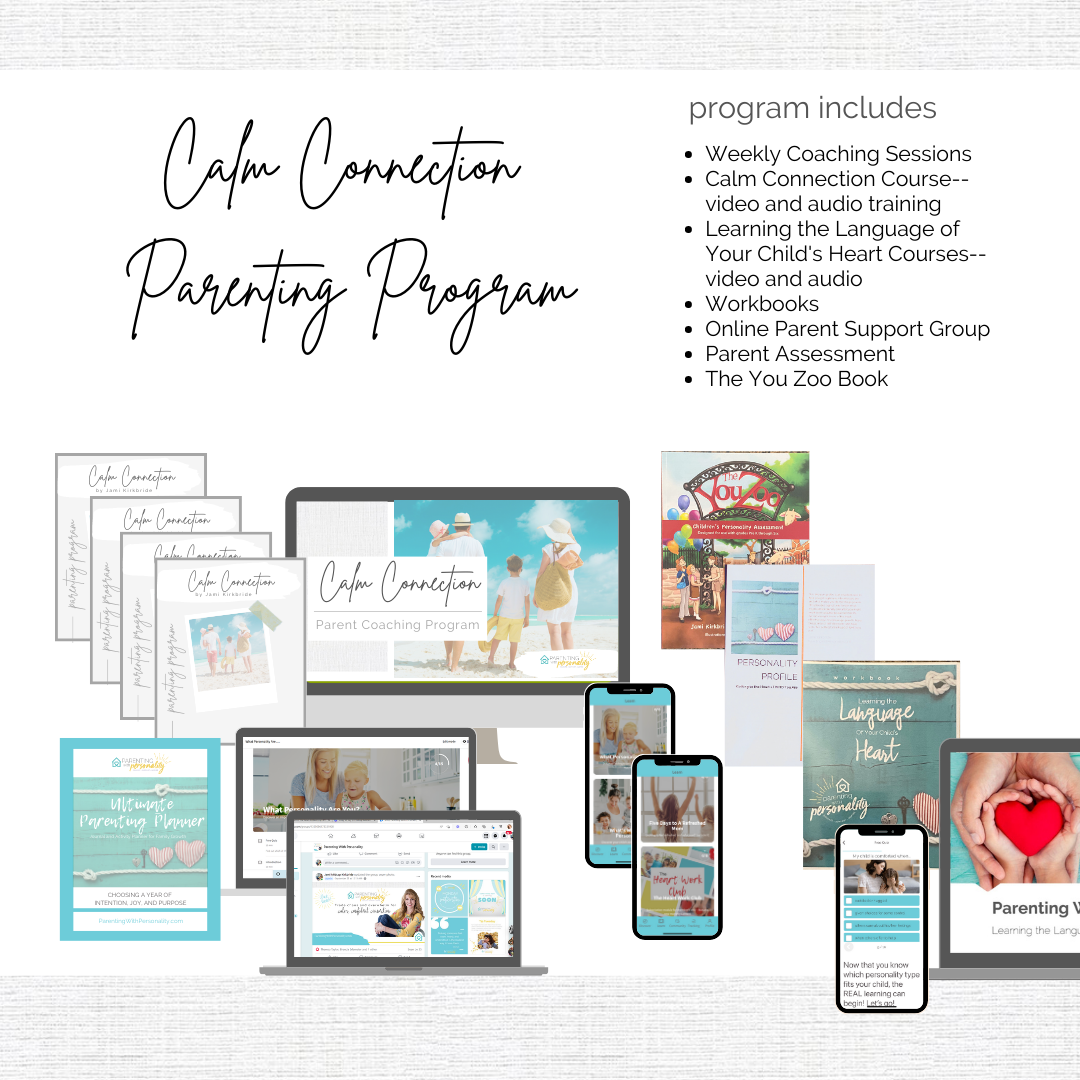
Are you up for making a difference in your child’s life? Join our Parenting With Personality Facebook Support Group to connect with like-minded parents and gain valuable insights. For personalized guidance, visit the Calm Connection Parent Coaching Program today!
Looking for a tool to springboard your new enthusiasm and excitement in being intentional as you create connection? I’ve got that all ready and waiting!
Get your Summer Synergy Guide NOW! This guide will walk you through 30 days of easy-to-complete activities that can quickly enrich your relationship with your child. These simple activities will help you take those ordinary moments and make them extraordinary by just adding some intention! Remember, it’s not about spending money or huge time commitments…it’s about using the small moments in meaningful ways! Even if summer has passed you by, the activities provided here are good year-round!
Needing a little more help, I’ve got that too! Check out the Quick Start Guide: Calming the Emotional Chaos Without Crushing Connection. This guide offers great help in figuring out your child, his personality, sensory, emotional needs, and unique wiring. Grow in understanding, acceptance and appreciation of your child! Together, let’s create a brighter future for our children! Let’s do this…let’s make a difference in the life of a child…yours and others for generations to come!
XOXO
P.S. Go download your Quick Start Guide today! This tool will help you get a good start on overcoming those challenges and helping you find that calm, confident connection you’ve been hoping for!


With warmth, expertise, and wisdom gained from raising seven wonderful children and a background in counseling, Jami, a dedicated parent coach, speaker, and author, offers valuable insights and practical guidance to empower parents on their unique journeys of raising children. Founder of Parenting With Personality and creator of Calm Connection Parent Coaching Program, she equips parents with the tools and strategies they need to foster a better understanding and meaningful connection with their little ones, especially those who are highly sensitive, emotional, intense, or challenging. As a regularly featured guest on ChannelMom Radio, her relatable stories and humorous stories bring inspiration to listeners, making parenting an enjoyable and fulfilling adventure. Join Jami on this incredible journey and discover a world where connection, laughter, and growth abound, even in a busy household, full of big emotions.
Study referenced in this article can be read about at this link:
Marples, Megan, CNN, Published 7:50 AM, Fri May 20, 2022 https://www.cnn.com/2022/05/20/health/family-connections-flourish-parenting-study-wellness/index.html

